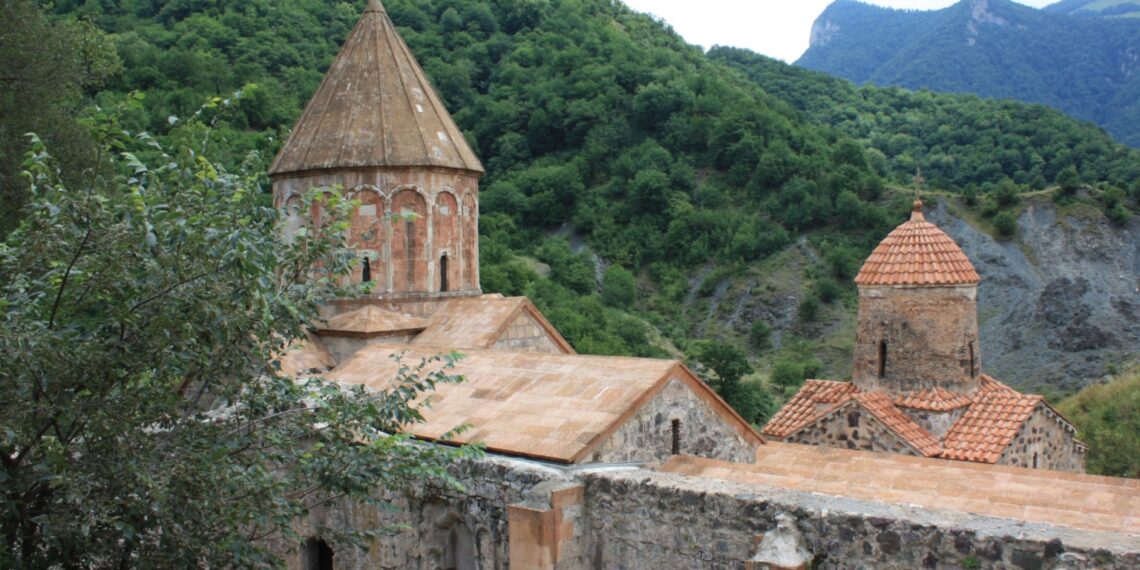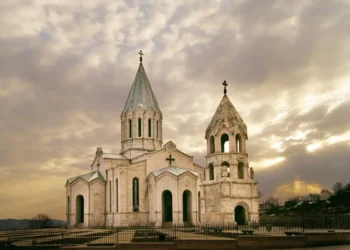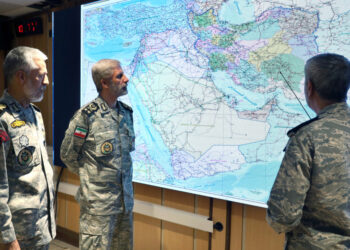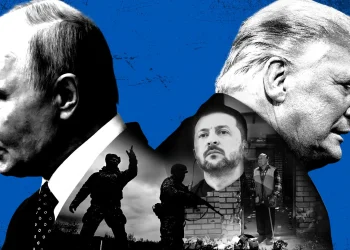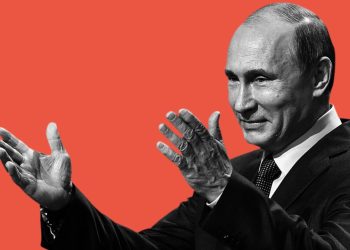TEL AVIV (Realist English). Many were surprised that in the last days of March, the sound of anti-Russian positions in Azerbaijan intensified. Strange, I expected this to happen. Many probably did not pay attention to the 25-year activity of such an organization as GUAM — Georgia, Ukraine, Azerbaijan, Moldova, which is essentially an anti-Russian bloc. And Azerbaijan’s role in this anti—Russian bloc is a leading one. It is only surprising that Russia has been practically ignoring Azerbaijan’s actions all these years. I think that the influence of a strong Azerbaijani lobby in Russia plays a role. In addition, official Moscow, trying not to lose its influence in the South Caucasus, is trying to maintain friendly, or at least business, relations with the countries of the region.
Just recently, the 44-day war in Artsakh ended and an agreement on the cessation of hostilities was signed through Russia’s efforts of. The opinion is cultivated in Azerbaijan that, having introduced the peacekeepers into Nagorno-Karabakh, it was Russia that did not allow the Armenian issue to be finally resolved. And a month ago, when the armed clash between Russia and the Ukraine began, Azerbaijan took an active anti-Russian position.
In this situation, Azerbaijan is trying to take advantage of what is happening and, on the sly, when everyone in the world is busy with the Ukraine, Baku is trying to activate its positions on the border with Armenia and Artsakh, hoping that the Russians will not be up to it now. We have witnessed the advance of the Azerbaijani Armed Forces in Karabakh, and the sharp reaction of the Azerbaijani leadership to Russia’s accusations of the Azerbaijani military for violating the provisions of the Trilateral Statement of November 9, 2020. The confrontation between Russia and Azerbaijan spilled out into the public sphere, so the beginning of the “information war” was predictable. Russia decided to block a number of Azerbaijani media outlets, to which Baku responded accordingly. It should not be forgotten that the level of free press in Azerbaijan is far from democratic, dissidents are hunted in the country, journalists and politicians are arrested and repressed.
If we talk about the reasons of what is happening today, it is clear that, assessing the situation in the world, seeing the confrontation between the Western world and Russia, Baku felt that it was advantageous for them to take the position they had taken.
Firstly, they earn points in front of the Western world, which is very important for Azerbaijan, because many international organizations often discuss issues of authoritarian rule in Azerbaijan, oppression of the opposition and the free press. Secondly, the Azerbaijani side is trying to continue, violating the trilateral agreement, to seize the lands of Artsakh. I think they won’t stop there unless some real steps are taken. First and foremost, it depends on Russia, which should formulate a clear position in relationships with Azerbaijan, Armenia and Artsakh. But it seems to me that the Russians, having made a pause now, will try to establish a dynamic balance with everyone again, not daring to aggravate the situation.
As for Armenia, it should put forward maximum demands to the Russian peacekeeping forces. It is quite possible that one would need to appeal to all representatives of the Minsk Group, maybe the presence of French and US peacekeepers would be beneficial.
I want to return once again to the issue of Armenia’s recognition of Nagorno-Karabakh. I have not been hiding my opinion on this issue for a long time. Armenia should have recognized Artsakh long ago. They may again object to me that now is not the time for such steps. Remember the Latin proverb: “Tomorrow, tomorrow, always tomorrow — that’s how life goes.” Today, when tectonic changes are taking place in the world, another change would sooner or later be accepted and with time everything would settle down.
Alexander Tsinker is the Director of the Institute of the CIS countries and Eastern Europe (Israel), Special to Realist English


